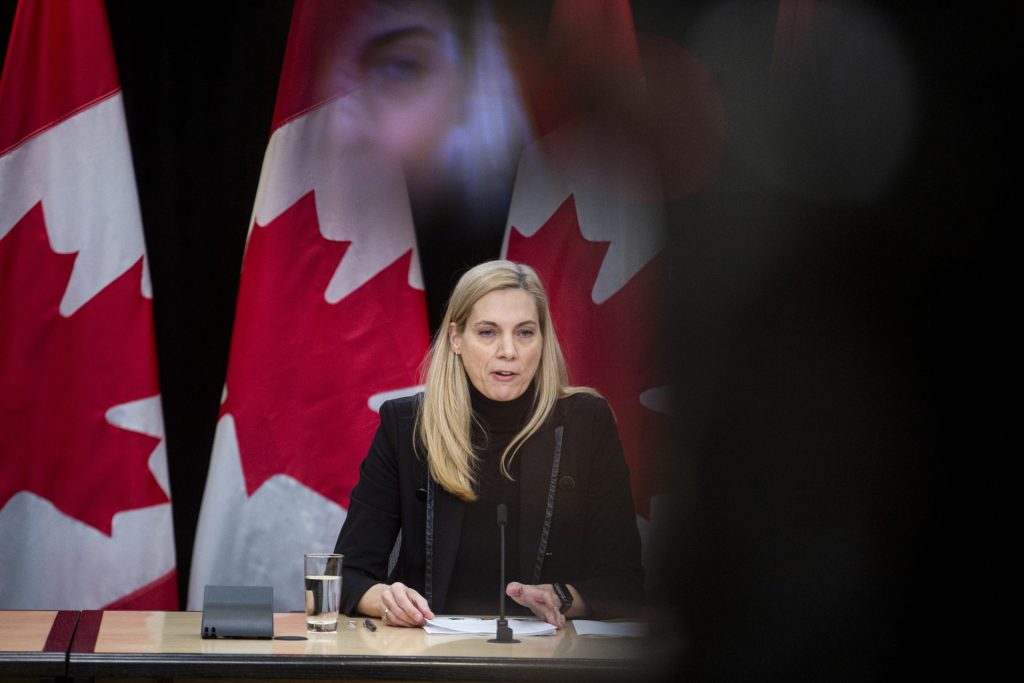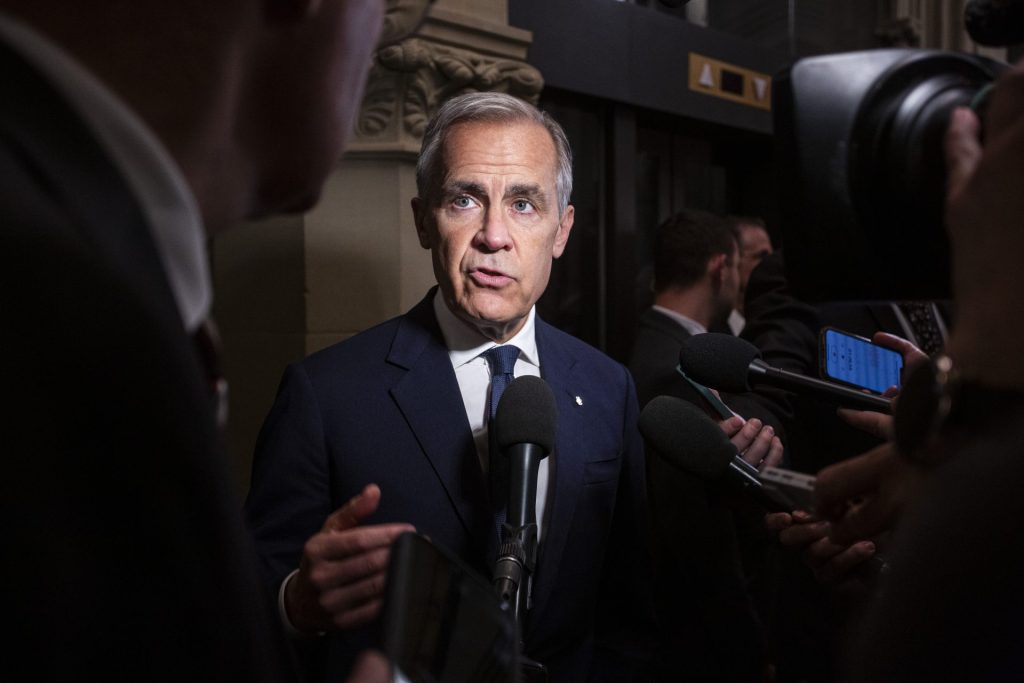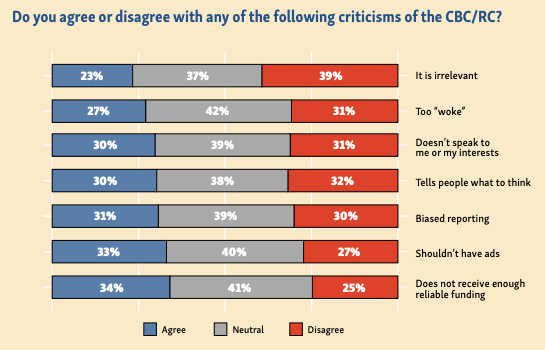CBC/Radio-Canada’s mandate should be reviewed much more often than it has historically, says the project lead of a recently released report titled “What Should the CBC Be?”
Prior to a list of proposals released in February by former heritage minister Pascale St-Onge ahead of the federal election, based on the work of an advisory committee, the public broadcaster’s mandate had not formally been reviewed since 1991 and is enshrined in the Broadcasting Act.
But despite proposals meant to boost the CBC such as adjustments to the broadcaster’s governance structure and increased citizen engagement, the document leaves much to be desired, said the report’s project lead Jessica Johnson in an interview with The Wire Report. The report was put together by Johnson, Emma Wilkie, and a team from the Centre for Media, Technology, and Democracy at McGill University.
The report is the result of a two-year study of public service media best practices within Canada and 17 other countries, including a national survey conducted in fall 2024 titled “Do we need the CBC?” It trumpets the need for public input to be included in determining the broadcaster’s mandate, and notes that the review resulting in the proposals released by the St-Onge this winter was conducted out of the public eye.
“The conversation shouldn’t begin and end with the question of the CBC’s survival. The CBC/Radio-Canada, like any other public service, should strive to meet the needs of its audience. Two years after a broad public debate for the continued existence of the CBC/Radio-Canada first started, Canadians still don’t have a clear picture of what that should entail,” the report states.
Mandate reviews need to be more frequent, researcher finds
“The beginning of the problem” is that CBC had not had a “real mandate review in more than 30 years,” Johnson said.
“We’ve neglected mandate reviews for so long that, to me, doing them every five years would make sense until the public media outlet, the CBC, is serving the audience in a way that they’re happier with.” Johnson wonders when legislation might be put forward to take action on any of the February proposals.
“We’re obviously in a very dynamic political situation right now. It seems to be the U.S. is coming and going all the time as the top priority, and then the defence spending is obviously another big priority. The public media is just usually not in the top five, and, in fact, closer to the bottom of the top 10.”
The CBC goes beyond the heritage file or culture file, Johnson asserts.
“It’s also public safety, climate crisis response, defence, information security…. To me, media touches the ministry [responsible for] emergency preparedness, it touches ISED, it touches even the new AI ministry that Minister [Evan Solomon] has, so it’s a very serious sort of file. And I don’t actually know if everyone realizes that.”
Funding remains a big question
Making CBC’s funding a statutory matter rather than yearly allotments from the federal budget would be “huge,” Johnson said, referring to a proposal to do so in the February 2025 mandate document and a campaign promise from Prime Minister Mark Carney (Nepean, Ont.).
The 2024-25 federal budget pitched $42-million for CBC/Radio-Canada. Carney said in April a Liberal government would increase the CBC’s funding by an additional $150-million.
St-Onge, who opted not to run again in April, did not provide a specific amount that the statutory per capita funding should be set to in her February proposal, explaining that it will be up to the government to decide, but she called for it to be closer to the average public broadcaster funding level for G7 countries at around $62 per capita. Currently, according to Canadian Heritage, the government provides approximately $1.38-billion to CBC/Radio-Canada, amounting to about $33.66 per capita.

Johnson said having CBC funds budgeted out for a set amount of years and not reliant on yearly funds from the government of the day would give the broadcaster power to not worry about balancing its budget within one year, according to whatever amount of money it is getting.
“That’s actually probably the biggest part of the minister of heritage’s mandate review in 2025 and [Carney’s] campaign commitment, because modest budget increases aren’t meaningful if we, or the next government, can just take it away the next year. But if you make it statutory, what you’re saying is the CBC will be guaranteed this amount of money,” Johnson said.
While the Carney government has promised the CBC money, it is also looking to have it spend less, according to reporting from the Toronto Star.
The Star reported on July 16 that the CBC is one of several Crown corporations asked by the federal government to propose their own cuts as it looks to find $25-million in yearly savings over the next few years.

CBC spokesperson Leon Mar confirmed to The Wire Report in an email on July 17 that CBC/Radio Canada has been asked to take part in the spending review.
“The government will assess all of the proposals, including CBC/Radio-Canada’s, and final decisions will be reflected in the government’s main estimates for 2026–2027, made public early next calendar year. Any necessary action on our part would be taken after that time,” Mar said.
The review is separate from the government’s promise to provide an additional $150-million to the CBC/Radio-Canada, Mar stated.
“The CBC/Radio-Canada will better serve the country when it is appropriately funded and mandated through the lens of what the audience needs first—including the news-avoidant audience,” Johnson’s report states.
Public consultation should be higher priority, report states
“Adequate funding is key to a better, stronger CBC/Radio-Canada, but our research shows that a population is more willing to financially support their public media service if they report higher levels of trust in it,” the report states.
It notes that CBC has “lost relevance” to some Canadians despite being seen as a “large, respected public media service” internationally, and found that the public broadcaster is no longer universally accessible to all Canadians.
Seventy-eight per cent of Canadians want the CBC to continue operating, according to the report, “especially if it addresses the major criticisms levelled against it.” Those critiques include that it is “irrelevant,” is too “woke,” is biased, and should not have ads.

Future study could centre around CRTC, Johnson suggests
Johnson has in mind three tangentially related topics that could be studied by other researchers in the future to continue to the conversation: whether the Canadian Radio-television and Telecommunications Commission (CRTC) has too much or not enough power to regulate, a comprehensive mapping of areas without local media coverage, and a public demographic survey of the Canadian audience for the CBC/Radio Canada that is publicly available and “shouldn’t be done by the CBC or the government alone.”
“We didn’t talk a lot about the CRTC in the report, and I think it’s a really important part of the discussion that never reaches the public consciousness,” Johnson said.
“Whatever the CRTC’s relationship is to the CBC, it’s still limited by and governed by the legislation. So if the legislation is out of date, then you can’t really judge the CRTC until you’ve figured out the legislation.”
As far as what is mentioned, the report notes that the CRTC does not have full oversight of the CBC’s digital activity, “perhaps, notably, because the CBC/Radio-Canada does not have a legislative requirement to create digital content in the form of podcasts, on a website, or via social media channels,” it states.
“That’s why the significance of its 1991 parent legislation, the Broadcasting Act, keeps coming up. It was written before consumers used the internet. Yet the fact of a public media service creating online content is a given; in 2024, the CBC News online’s digital audience share was 21 per cent, and 26 per cent for ICI-Radio-Canada online,” according to the report, which cites a June 2024 study by the Reuters Institute.
Ultimately, Johnson’s hope for the report is that it fosters conversation amongst the Canadian public, as well as between officials.
Mar told The Wire Report that CBC will review the report “in detail.”
“The report is an important study of CBC/Radio-Canada and the value it provides to Canadians. It also offers valuable recommendations to strengthen CBC/Radio-Canada for the future. This is a significant contribution to discussions about the future of public broadcasting in Canada.”
—with a file from Phalen Tynes-MacDonald
This piece was updated with additional comment, and republished from The Wire Report, which covers the intersection of business, technology, and government, with a special focus on the regulatory sphere. Sign up here.
hdaley@thewirereport.ca
The Hill TImes
